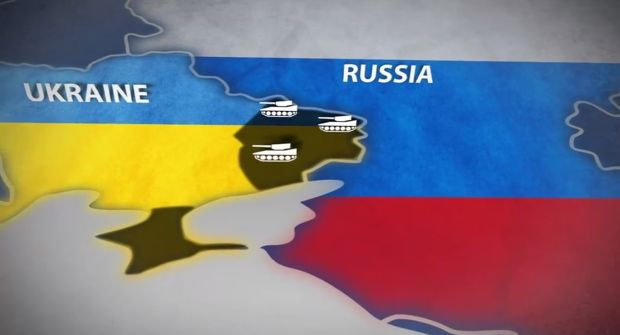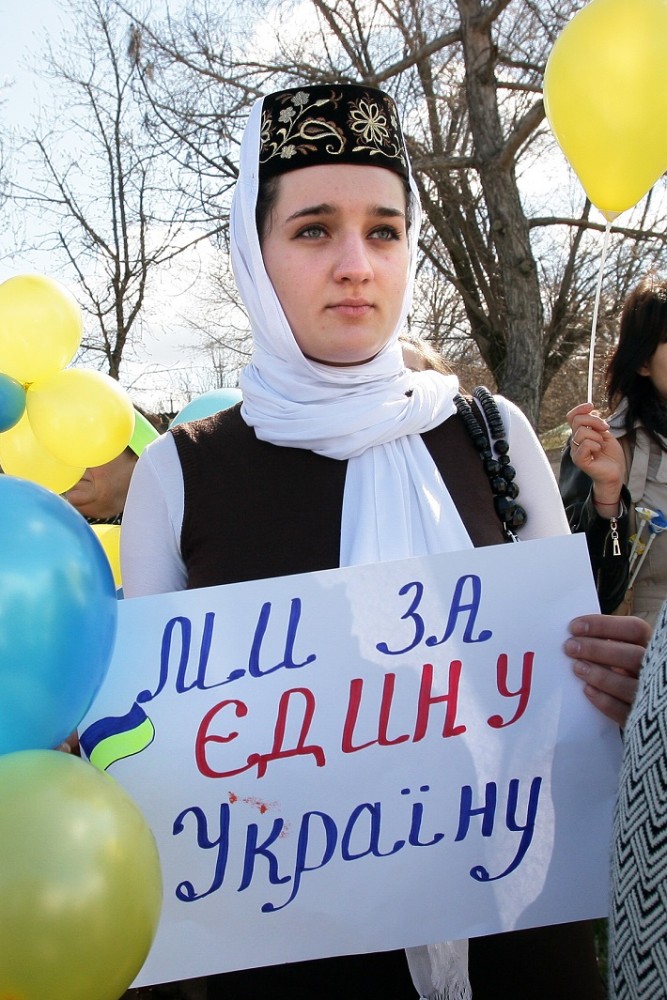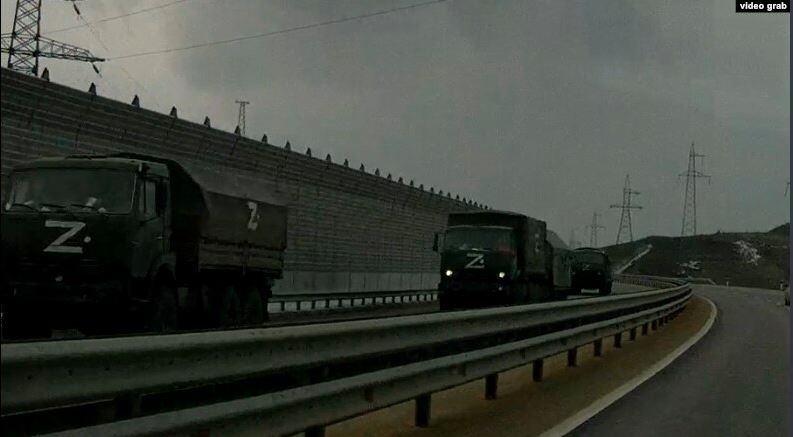For almost 2 years Ukraine is still one of the central issues of international politics. The unprecedented Revolution in 2013 launched no less unprecedented aggressive actions of Russian Federation in Crimea and eastern Ukraine. These events marked the new reality of international politics and law.
1) The comprehension of the consequences of aggression is still in progress. It would be too early to assume that the outcome of Russian aggression has been determined so far. These aftermaths will be determined by the ability or disability of the leading actors to make right conclusions and to learn “Ukrainian lessons”.
2) Russian aggression has its historical background. The crisis in Ukraine is impossible to present as an unexpected failure of world politics as something illogical. During 1999-2013, the world faced an array of events that undermined principles of international law and the role of UN Security Council concerning the regulation of conflicts (Yugoslavia 1999, Afghanistan 2001, Iraq 2003, Kosovo 2008, Russian-Georgian war 2008, Libya 2011 and the fomenting of a conflict in Syria). It also should be stressed that after Russia had invaded Georgia in 2008, after all, it did not provoke an overreaction; moreover, it obtained the possibility for the “restart of relations with the United States”. The aggressor was forgiven.
3) Russian aggression against Ukraine had three “waves“. The first “wave” of Russian aggression should be considered as the military occupation of Crimea by means of aggressive acts. The second “wave” is an act of aggression in the east of Ukraine, namely, the process of creation of the “LNR” and the “DNR” that is connected with the sending of irregular groups and mercenaries. The third “wave” should be considered as direct invasion of Russian regular armed forces in eastern part of Ukraine since the August 2014.
4) The Russian Federation tried to justify its aggression as a response to the Revolution of Dignity (Euromaidan). Russia insisted on the following assertions: 1) Viktor Yanukovych continues to be legitimate President, 2) lack of any efficient or reliable leadership in post-revolution Ukraine, 3) presence of permanent threat for the Russian-speaking citizens of Ukraine. Apparently, arguments of the Russian side stood no chance against criticism of Ukrainian constitutionalists. From the very beginning, Yanukovych had been an “illegitimate inviting agent” (in accordance with paragraph 23 of article 85 of the Constitution of Ukraine). This means that he had no right to invite foreign mercenaries to Ukraine. As regards the threat for Russian-speaking citizens of Ukraine there were no reports published by authoritative international organisations confirming human rights abuse in the Autonomous Republic of Crimea or in Ukraine. Taking into account the abovementioned, one can conclude that reference to protection of citizens / humanitarian intervention was groundless.
5) The Russian Federation has chosen a rather inconsequent strategy regarding the new reality in Ukraine. In its declarations, the former indicated that it is not bound by any international obligation in respect of the latter, as for instance in the Budapest memorandum on Security Assurances to Ukraine. The Russian argument has been fairly weak. In accordance with the 1997 decision of the International Court of Justice in the Gabčíkovo-Nagymaros case, a clear distinction has been denoted that a revolution or a change of political regime provides no ground for revision of the undertaken international obligations. Furthermore, Russia has not severed its diplomatic relations with and recalled diplomatic recognition of Ukraine.
6) The so-called “Crimean referendum” is illegitimate from the perspective of national law. The “referendum” took place with multiple violations of the Constitution of Ukraine, the law on the all-Ukrainian referendum, and the law on local governance in Ukraine. In 2014 in its court ruling the Constitutional Court of Ukraine also recognised the referendum as such that conflicts with the Constitution.
7) The “Crimean referendum” is illegitimate in terms of international law. The so called “referendum” was held under the conditions of the Russian Federation’s aggression against Ukraine according to regulations ‘a’, ‘b’, ‘d’ and ‘g’ of United Nations General Assembly Resolution 3314, that is sending armed groups, irregular troops or mercenaries who carried out acts of armed force by or on behalf of the State (forceful seizure of Crimea’s authorities). The absence of resistance does not cancel the fact of an act of aggression (follows from Article 2 of the Geneva Conventions of 1949). The fact of Russian military involvement in the special Crimea’s return operation was recognized by Vladimir Putin. On March 27, 2014 by a vote of 100 in favour, the Assembly adopted a resolution titled “Territorial integrity of Ukraine”, calling on States, international organizations and specialized agencies not to recognize any change in the status of Crimea or the Black Sea port city of Sevastopol, and to refrain from actions or dealings that might be interpreted as such.
“Referendum” was held in violation of international standards for international observers, the duration of preparation (less than 20 days), transparency and freedom of agitation. The questions of the “referendum” in Ukrainian and Russian, as well as Crimean Tatar language were different. In the first case, they used the term “reunification”, in the second case it was “accession”. The “referendum” could not be a form of the principle of self-determination of nations for the reason that the subject of such self-determination is Crimean Tatars, who already had autonomy. Position of Ukraine concerning Autonomous Republic of Crimea was supported in various ways by G7, EU, Council of Europe, NATO, the UN Security Council, the OSCE, the International Civil Aviation Organization (ICAO), and by a number of states.
8) The Russian Federation has carried out a military occupation of Crimea. The fact of military occupation is confirmed by international humanitarian law and the summary of the International Court of Justice’s case of the legal consequences arising from the construction of the wall being built by Israel, the occupying Power, in the Occupied Palestinian Territory: “Territory which came under the control of the occupying power is considered occupied”. Here the control takes place.
9) Since the beginning of the military occupation of Crimea, Ukraine and Russia are in a state of international armed conflict. The international armed conflict is taking place as a result of the commission of an act of aggression against Crimea.
10) The Russian Federation is fully responsible for the crimes committed by it under the conditions of military occupation. The terrible situation concerning human rights in the Crimea under the conditions of military occupation is confirmed in the reports of the UN, Amnesty International, Human Rights Watch, and Freedom House. The fact that the responsibility for human rights in the occupied territory lies on the Russian Federation is confirmed by the European Court of Human Rights, particularly by Ilascu and others against Moldova and Russia, where Russia has been recognized as “responsible for human rights in Transnistria.”
11) The Russian Federation has conducted an act of aggression in Eastern Ukraine, in particular, according to regulations ‘a’, ‘b’, ‘c’, ‘d’, ‘e’ of United Nations General Assembly Resolution 3314. In the world, Russia’s actions are recognized as military aggression/acts of aggression and interference in the internal affairs of Ukraine (The Council of the EU, NATO, PACE, UN, etc.).
12) The Republic of Nicaragua v. The United States of America case is a legal basis for international legal assessment of the Russia’s actions in Ukraine. In the context of the “Nicaragua” case, it can be deduced that:
- “The interference in the internal affairs of Ukraine” should be considered as “training, arming, supplying, financing and other means of support”
- Illegal flights are a violation of state sovereignty
- Losses are to be compensated
On the basis of this case, it can also be affirmed, that the very fact of sending armored groups and providing financial support is an armed attack on Ukraine, which confirms the act of an aggression.
13) The newly-created "LNR" and "DNR" have become the main tool of the Russian aggression. Those are separatist formations and terrorist organizations. The "LNR" and "DNR" are illegal in the framework of Ukrainian legislation on local self-government and are covered by Article 110 of the Criminal Code of Ukraine: “encroachment on the sovereignty of the territorial integrity”. The "LNR" and "DNR" are terrorist organizations (according to Article 258 of the Criminal Code of Ukraine) as a result of committing war crimes and crimes against humanity. One of the Russian Federation’s acts of aggression is particularly the creating of the "LNR" and "DNR," conducting illegitimate “referendums”, on which soldiers of Armed Forces of the Russian Federation have voted. For these purposes, intelligence and diversionary groups were sent to Ukraine, headed by staff officers of the General Staff of the Armed Forces of Russia.
14) The "LNR" and "DNR" are the authorities of Russia and act as official representatives of the government of the Russian Federation. There is a real connection between the "LNR" and "DNR" on the one side and Russia on the other, in a form of control, heading and planning. There is plenty of evidence of Russia providing the "LNR" and "DNR" with military, logistical, economic and financial support, particularly by sending the illegal “humanitarian convoys”. On the basis of 2007 Bosnia and Herzegovina v. Serbia case an effective control of Russia over the "LNR" and "DNR" can be proved (“an effective control over the activity, particularly by giving them instructions for conducting operations”.) On the basis of International Criminal Tribunal for the former Yugoslavia case on Duško Tadić a general control of the Russian Federation over the "LNR" and "DNR" can be proved (“ an overall control over the activity, for instance, financing, armoring and training”). An effective or general control shows that the "LNR" and "DNR" are official authorities of the Russian Federation’s government. Actions of the "LNR" and "DNR" may be directly considered as actions of Russian regular army.
15) Since the beginning of the aggression in eastern Ukraine, our country and the Russian Federation are in the state of international armed conflict. Based on the decision of the International Criminal Tribunal for the former Yugoslavia in the case of Duško Tadić and the case of Boskoski (“characteristics of an armed conflict are defined by organization of forces, duration of armed clashes, the area of clashes and their intensity”), it can be asserted that an international armed conflict in eastern Ukraine does exist. The fact that "LNR" and "DNR" are the authorities of the Russian Federation only confirms this conclusion.
16) Minsk agreement is for the time being the only legal basis for the settlement of the conflict in eastern Ukraine. These agreements initially had the status of modus vivendi (informal agreement between the parties involved in the confrontation), which means they were a political declaration. The state considered the international armed conflict to be a counterterrorist operation and continued to negotiate with the aggressor state. Ukraine declared Russia to be the aggressor state, but did not impose martial law. “Hybrid war” resulted in “hybrid” Minsk agreement and “hybrid” Minsk diplomatic process. Minsk-2 was a framework and questionable document from the point of view of international law. Along with this all has changed after the approval of the text of Minsk-2 by the UN Security Council Resolution 2202. Since the adoption of this Resolution the text shall come into obligatory legal force.
17) Acts of Russia against Ukraine are the grounds for bringing the Russian state and senior officials of the Russian Federation to the international legal responsibility. The use of mechanisms within the UN Security Council (recognizing Russia as the aggressor, applying coercive or military measures against it) seems to be futile given the Russia’s “bloody” veto. The use of the mechanism of the UN Security Council Resolution “Uniting for Peace” (removal of the aggressor from the session by the ¾ majority vote, i.e. 129 votes of the General Assembly) is more realistic. It should be noted that the UN General Assembly can take a political decision on the recognition of Russia as the aggressor.
18) Ukraine has a wide range of opportunities to sue Russia in the international courts. Ukraine may apply to the International Court of Justice on the basis of: a) International Convention for the Suppression of the Financing of Terrorism, 2001, b) Convention against Torture and Other Cruel, Inhuman or Degrading Treatment or Punishment, 1984, a) International Convention on the Elimination of All Forms of Racial Discrimination, 1965 (on the Crimean Tatars), d) International Convention for the Suppression of Terrorist Bombings, 1997, e) the Convention on International Civil Aviation, 1944 in the context of shooting down the Malaysian Boeing flight MH17. The application of the mechanism of advisory opinions of the International Court of Justice (concerning the issues of the Russian aggression in the east of Ukraine or the illegal occupation of Crimea) is also promising.
Ukraine may initiate proceedings in the International Criminal Court, the European Court of Human Rights, the International Tribunal for the Law of the Sea, the Permanent Arbitration court in The Hague, the High Court of London (as “debt dispute”) and under the special procedures of the Council of Europe, OSCE etc.
19) “Ukrainian precedent” of the Russia’s hybrid aggression caused the appearance of “Ukrainian lessons”. These “lessons” became the basis for partial destructive crisis of International law. This crisis means that today not law, but power regulates key “geopolitical” relations between states.
20) The world is still divided into those states and leaders that respect International law, and those who despise it. Russia continues to claim that it respects and even rescues the International law, while its leader has already committed enough crimes to be judged by the international tribunal. Russia violated at least 300 international agreements and it still remains unpunished.
21) The International law crisis means an informal review of international commitments regarding everyone, including Russia. The world is entering into a phase of strengthening International relations’ chaos on a background of reducing its safeness, which threatens as a general “war of all against all”.
22) The world today faces the appeal against the International legal reality. Putin defies the fundamental basics of the West foreign policy. The Kremlin demands for a status of International politics equal participant. The manifestation of such recognition, according to Moscow, is an obsolete Cold War principle, namely dividing the spheres of influence. According to the Kremlin, in such divide Ukraine has a role of satellite dependent on Russia.
23) An artificial crisis of International law system in Ukraine means gradual “smoothing” and the actual dismantling of International relations system developed after World War II. What is happening in Ukraine is a matter of basic principles governing relations between States in the 21st century. Confrontation between Ukraine and Russia is not another local conflict, but it marks the beginning of the change of “international rules.”
24) At the present stage Ukraine has to act as a subject of the World politics with significant dependence on other international actors. Ukraine did not use its brilliant geopolitical and geostrategic potential. In this regard, in the 2013-2016 our state had not got a full capability to realize its geopolitical project. Ukraine found itself in so-called intersystem periphery or geopolitical turbulence zone. At the same time Russia was unable to fully achieve its goals. Russia failed to destroy an independent Ukrainian state and Ukrainian prospect.
25) The most effective strategy against Putin’s aggression is the strategy of his “elimination”. Such elimination, on the one hand, includes international economic, informational, political, security and legal measures, and on the other hand, it means a formation of successful, reformed and economically prosperous Ukraine.




